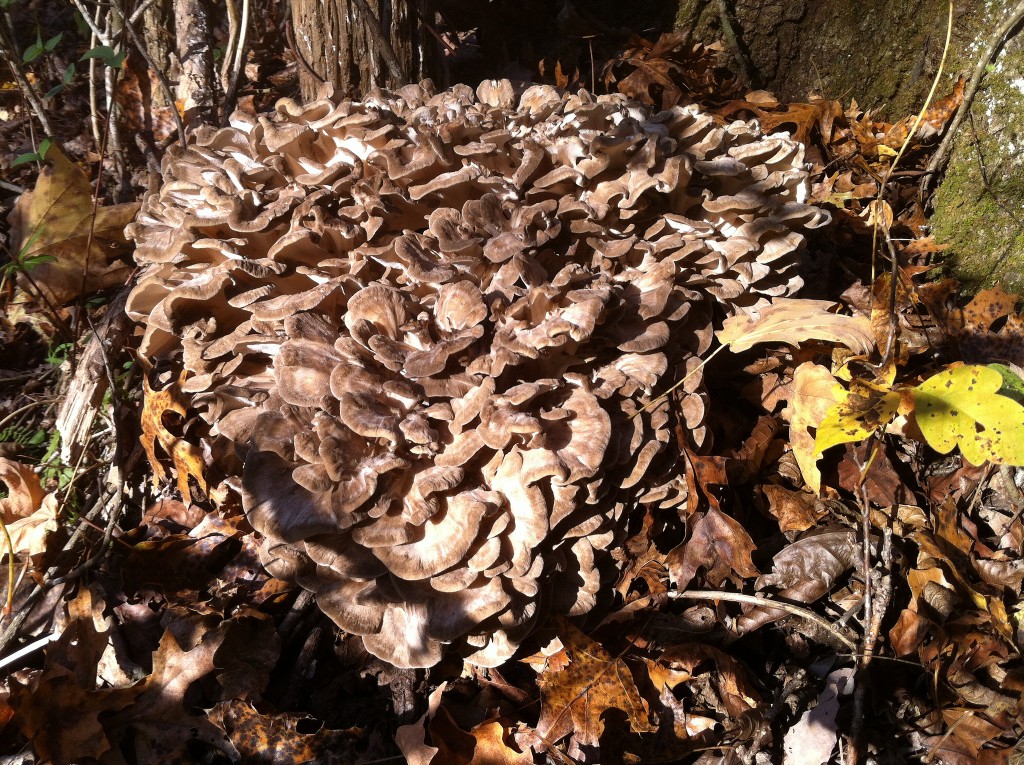
As you enjoy the beautiful colors of Fall this year you may notice several varieties of wild mushrooms growing at the base of some large hardwood trees in Tennessee. One mushroom in particular we need your help finding is called “Hen of the Woods,” or Maitake (Grifola Frondosa).
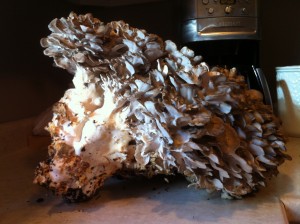 If you find one of these beautiful native mushrooms, and you live within about 75-100 miles of our organic farm in Woodbury, TN, we’d love to come visit and take tissue samples to replicate in our farm’s mushroom lab.
If you find one of these beautiful native mushrooms, and you live within about 75-100 miles of our organic farm in Woodbury, TN, we’d love to come visit and take tissue samples to replicate in our farm’s mushroom lab.
What to look for: The huge 9 lbs. Maitake pictured here was found on our property October 22, 2012 at the base of a large oak tree. You can find them either at the base of oaks and other hardwoods or running along large surface roots fanning out from the tree. They usually return year after year (learn more).
What we’ll do: we will bring a small lab kit to sample the tissue, replicate the mycelium in a petri dish and then spawn the culture samples into various growth mediums including sawdust and pegs for logs. If you find one, call us at 615-469-7778. We will only positively identify this variety of mushroom in person, but close-up photos emailed to us can help us decide whether to make the trip.
If you are interested in growing your own Shiitake or Maitake mushrooms on logs at home, send us a short message to receive future notifications on scheduled workshops or availability of spawn pegs and inoculated logs from Half Hill Farm.
Read more: Paul Stammets has a nice article that includes excellent research on Maitake mushrooms and its medicinal value, in particular for Type 2 Diabetes. Below is the nutritional value of Maitake mushrooms excerpted from the article.
- 377 calories per 100 grams dry weight
- 25 percent protein
- 3-4 percent fats (1 percent polyunsaturated fat; 2 percent total unsaturated fat; 0.3 percent saturated fat)
- ≈60 percent carbohydrates (41 percent are complex carbohydrates)
- ≈28 percent fiber
- 0 percent cholesterol
- B vitamins (mg/100 g): niacin (64.8); riboflavin (2.6 mg); and pantheonic acid (4.4 mg)
- High concentration of potassium: 2,300 mg/100 g (or 2.3 percent of dry mass!)

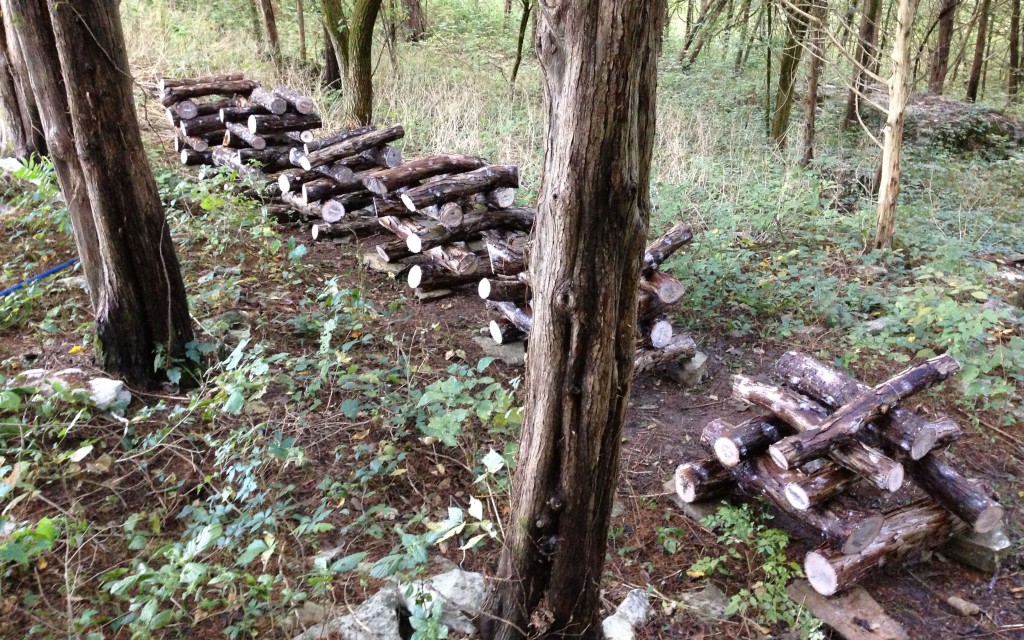

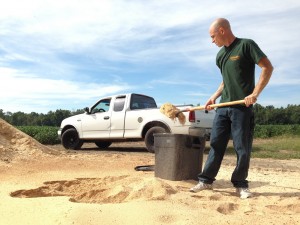
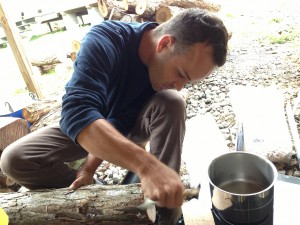 Everything about growing mushrooms feels right. While producing a food with near magical health benefits, we are also sequestering larger volumes of carbon from felled trees into our soil through compost creating a multi-threaded sustainable loop that increases the health of our soil, our food and ultimately our planet.
Everything about growing mushrooms feels right. While producing a food with near magical health benefits, we are also sequestering larger volumes of carbon from felled trees into our soil through compost creating a multi-threaded sustainable loop that increases the health of our soil, our food and ultimately our planet.